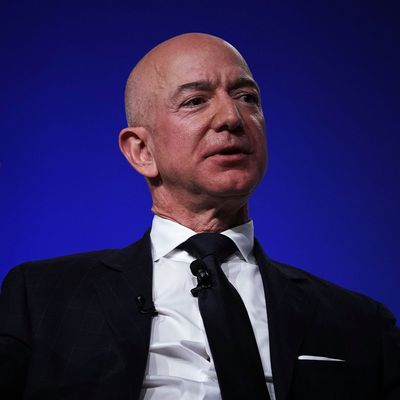
It’s kind of brilliant.
After getting dozens of cities to prostrate themselves with offers of financial incentives and zoning changes and other inducements to win Amazon’s “second headquarters,” the Wall Street Journal reports Amazon intends to pick two winners — likely from a short list of New York City, Dallas, and Crystal City, Virginia. That means Amazon is likely to collect two location incentive packages instead of just one, and we will end up with HQ2 and HQ3, or HQ2a, or something.
Or, if you hate fun, you could describe it in more prosaic terms: Amazon will continue to be a company with the normal number of headquarter offices (one), and it will establish two large satellite offices, much in the way you would have expected a company of its size to do over time — but typically without the fanfare and bidding wars it has created for itself here.
Consider, for example, Google. Google has over a million square feet of office space in New York City, where it has over 7,000 employees, the most the company has at any location outside the Bay Area. Its campus covers two entire city blocks in Manhattan, from Eighth to Tenth Avenues between 15th and 16th Streets, with a presence that expands into surrounding buildings. Google is even taking over most of a refurbished pier that sticks into the Hudson River.
Nobody calls this Google’s “second headquarters.” It’s just the New York office — a large office, but then, Google is a large company. Nobody is confused about where Google’s headquarters is: Mountain View, California.
But maybe Google should claim to be co-headquartered in New York. After all, the “second headquarters” approach is visionary branding from a government-relations perspective. It not only allows politicians trying to build support for subsidies to Amazon to say they’re getting something more exciting than a regional office, it also allows voters to imagine Amazon may greatly transform their city’s economy.
A transformation could entail downsides (traffic, higher housing costs) but then, a lot of stakeholders can be persuaded to see those as upsides (more customers, higher home values).
But it may be that, even more importantly, calling this office-space search a search for “HQ2” was smart from the perspective of government relations with the city of Seattle. Amazon has had an at-times uneasy relationship with its home city, including the recent effort to impose a “head tax” on large employers like itself. Starting a competition to establish a second headquarters/large satellite office doesn’t just give Amazon an opportunity to shift some jobs out of Seattle if the policy environment becomes unfavorable there. It also serves as a threat to Seattle — be nice, or we’ll do less here and more elsewhere.
I guess that threat is only more potent if Amazon has not one but two new “headquarters” offices to shift jobs to.
If Amazon bestows one of its satellite headquarters on New York (and based on the Journal report, the odds sound pretty good), Amazon will probably be located just up the street from Google, since the company’s existing New York office is at 10th Avenue and 31st Street, amid a rapidly developing office neighborhood where a tenant like Amazon could find millions of square feet of space if it needed it.
And, as someone who lives in that neighborhood, I think that would be pretty cool. Amazon is already bringing us a new neighborhood amenity — a Whole Foods on the ground level of the building that houses their existing, non-headquarters office. Maybe if they build a bigger campus, we’ll get an even bigger Whole Foods.
The Wall Street Journal says Amazon intends to eventually have 25,000 employees in each headquarters city, meaning this office would be three times the size of Google’s Chelsea presence. But then, Google has been expanding rapidly in New York too (it’s resorted to buying the office buildings in which it operates so it can take over other tenants’ leases when they expire), so it’s unclear if Amazon would be much bigger in New York than Google once it’s finished scaling up here.
So, it won’t really be a headquarters. But if the Whole Foods is big enough, I’ll be willing to call it one.





























